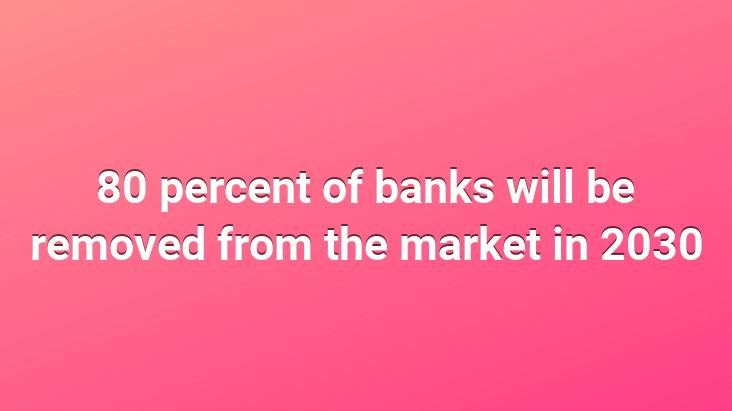According to Gartner’s estimations, 80% of financial institutions will either withdraw from the market in the next 12 years or be wiped out in the competitive environment by not being able to adapt to changing customer expectations and developments in technology.
According to Gartner, the problem only exists but it stems from “historical financial institutions” that cannot adapt to the competitive environment as much as global digital platforms, while on the other hand, the use of technology is changing the economy and business models in the sector.
According to David Furlonger, Chairman of Gartner, banks. The risks of failure will increase as they continue to use 21st century businesses and systems.. Robust financial service providers need to act faster by building digital platforms or finding suitable products and services to sell to other services.”
While 20% of traditional firms will continue to earn, three new types will continue to earn, according to Gartner. will emerge:
-Power-law firms: Firms with a digital platform will be able to use their scalable, low-cost infrastructure and user data to develop new services and enter new industries. Few, five percent of the traditional winners can be in this group.
-Fintech: Individual firms will divide traditional economic services into different product areas.. They will act on digital platforms but not own them. 15% of the winning firms will be able to turn themselves into successful fintechs.
-Long-term firms: Traditional providers will act as service brokers as a result of very low cost digital platforms. This is mostly for low- and low-income people around the world, who weren’t particularly profitable customers before.. They can also offer different products for wealthy individuals.. 80% of winning traditional economic service providers can keep it that way.
Pete Redshaw, application manager at Gartner: “The future of the financial services industry is getting lighter, it only requires one or two physical structures to exist.. This leaves the market especially vulnerable to digital competitors.”
The pace of digital change depends on the laws and regulations as well as the demographics and behaviors of customers that vary from country to country.. In some countries, protectionist regulations prevent innovation, on the other hand, laws accelerate change in countries such as Australia, Brazil, China, India and England.
Follow us on Twitter to stay up to date with last-minute developments. like and Join our Telegram channel!

